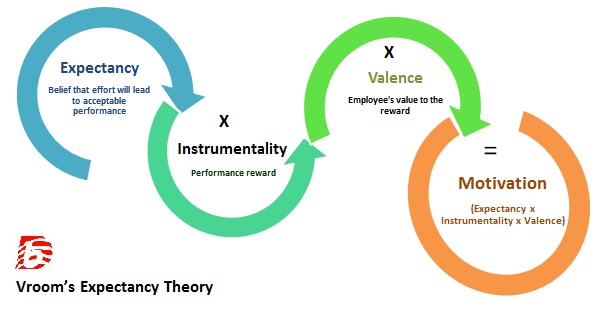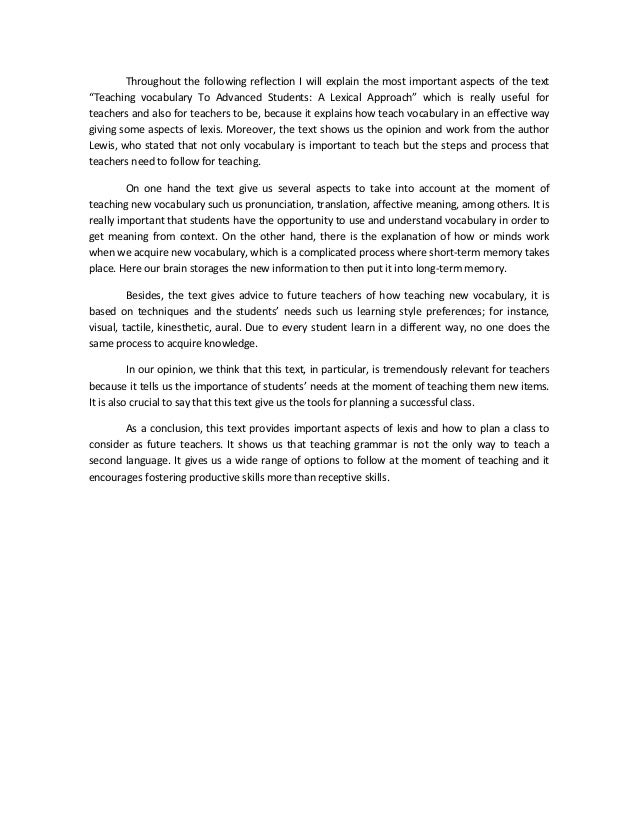This is done before making the ultimate choice. Expectancy theory has three components.
 Expectancy Theory What Is It Definition Examples And More
Expectancy Theory What Is It Definition Examples And More
Expectancy Theory or VIE Theory is based on the premise that motivation occurs when three specific conditions are satisfied.

Explain the expectancy theory. Putting in more effort will yield better job performance. In this context positive role models that have worked hard to improve their performance who are then rewarded for all this effort will increase motivation. Very simply the expectancy theory says that an employee will be motivated to exert a high level of effort when he or she believes that.
Expectancy theory proposes that an individual will behave or act in a certain way because they are motivated to select a specific behavior over others due to what they expect the result of that selected behavior will be. Expectancy theory is based on the belief that effort produces performance and performance produces desirable outcomes. Since it is an association between effort and performance its value can range between 0 and 1.
What does the expectancy theory explain about employees. Victor Vroom a sociologist and business school professor at the Yale School of Management created the Expectancy Theory in the 60s. Better job performance will lead to organizational rewards such as an increase in salary or benefits.
The expectancy theory is typically a management or business principle although it can be used for self-motivation. Expectancy describes the persons belief that I can do this. This means that even if an employer provides all that is required for motivation and it works with the majority in the organization some employees will still feel demotivated.
This theory is about choice it explains the processes that an individual undergoes to make choices. Expectancy instrumentality and valence. In essence the motivation of the behavior selection is determined by the desirability of the outcome.
Expectancy is the probability that a particular action will lead to the outcome it is the perception in the mind of the individual of the likelihood that a particular action or behaviour will lead to a certain outcome. Expectancy Theory Victor Vroom The expectancy theory says that individuals have different sets of goals and can be motivated if they have certain expectations. The expectancy theory is based on perceptions.
Expectancy theory predicts that employees in an organization will be motivated when they believe that. Vrooms Expectancy Theory is based on the assumption that an individuals behavior results from the choices made by him with respect to the alternative course of action which is related to the psychological events occurring simultaneously with the behavior. Expectancy theory or Expectancy theory of motivation proposes an individual will behave or act in a certain way because they are motivated to select a specific behavior over other behaviors due to what they expect the result of that selected behavior will be.
In it he studied peoples motivation and concluded it depends on three factors. A good appraisal will lead to organizational rewards. The Expectancy theory states that employees motivation is an outcome of how much an individual wants a reward Valence the assessment that the likelihood that the effort will lead to expected performance Expectancy and the belief that the performance will lead to reward Instrumentality.
This process begins in childhood and continues throughout a persons life. Expectancy instrumentality and valence. The organizational rewards will satisfy his or her personal goals.
As managers Expectancy Theory can help us to understand how individual team members make decisions about behavioral alternatives in the workplace. Expectancy instrumentality and valence. Vroom realized that an employees performance is based on individual factors such as personality skills knowledge experience and abilities.
However at the core of the theory is the cognitive process of how an individual processes the different motivational elements. Think of motivation as a chain where each link represents a condition and the intersection of each link represent its components. Expectancy is the individuals belief that effort will lead to the intended performance goals.
Abraham Maslow and Frederick Herzberg also researched the relation between peoples needs and the efforts they make. In 1964 Canadian professor of psychology Victor Vroom developed the Expectancy Theory. Expectancy Theory basically states that a person behaves the way they do because they are motivated to select that behavior ahead of others because of what they expect the result of that behavior to be.
Traditionally Expectancy theory was most applicable where motivated employees needed the reward on offer. The effort will lead to a good performance appraisal. Expectancy theory describes the extent to which an individual is likely to pursue a certain course of action motivational force which is in turn a function of expectancy a belief that increased effort will produce better performance x instrumentality a belief that better performance will lead to certain outcomes x valence a belief that the outcome will.
Vrooms expectancy theory assumes that behavior results from conscious choices among alternatives whose purpose it is to maximize pleasure and to minimize pain. Effort performance and outcome. The theory attempts to explain why individuals choose to follow certain courses of action in organizations particularly in decision-making and leadership.
When it comes to business managers and executives within companies use this theory to motivate their employees.
Reflection is an important part of the learning process and is needed for effective learning. Reflective teaching means looking at what you do in the classroom thinking about why you do it and thinking about if it works - a process of self-observation and self-evaluation.
 Reflection Teaching Vocabulary To Advanced Students
Reflection Teaching Vocabulary To Advanced Students
Reflective teaching practises really help you to think about each student as an individual learner with unique needs.

Explain the importance of reflection in teaching. Reflection is a meaning-making process that moves a learner from ones experience into the next with deeper understanding of its relationships with and connections to other experiences and ideas It is a means to essentially moral ends Rodger C. Han 1995 stated that the process element of reflection emphasises how teachers make decisions content stresses the substance that drives the thinking and reflective inquiry may set the stage for learning how to be a good teacher. In a profession as challenging as teaching honest self-reflection is key.
We explore this in more depth in our latest issue of Cambridge Outlook. The importance of teacher reflection can extend to curriculum construction program design implementation and evaluation since teachers are often involved in such process. They accept video or audio responses from individuals duos or triads and allow students to complete the reflection on their own time.
That means that we must regularly examine what has worked and what hasnt worked in the classroom despite how painful it can sometimes be to look in the mirror. It is an integral step to improving our practice. In an article titled Teacher Reflection In a Hall of Mirrors.
The roots of reflective teaching are historically evident in the works of John Dewey 1933 1938 who maintained that reflection is an important aspect of learning from experience. And educators do tend to reflect on their teaching methods. What does this demand of us as teachers.
Reflective teaching is a significant element in student teachers initial training programme. It allows teachers to adjust and respond to issues. Evaluation is called reflective teaching.
Reflection is deliberate and structured thinking about choices. By reflecting on such process we can identify some issues relating to curriculum construction program design implementation and evaluation and find solutions to the issues. Self-reflection is important because its a process that makes you collect record and analyze everything that happened in the lesson so you can make improvements in your teaching strategies where necessary.
Knowledge that is so important to being an effective teacher and in shaping childrens learning. They organize instruction so that students are the producers not just the consumers of knowledge. Brookfield succinctly describes the advantages of reflective practice to teachers as.
This is a time of troubling uncertainty. Contributed by Madhu Narayanan and Jill Ordynans. Reflection is a form of self-awareness and learners that can reflect are better able to understand themselves and the learning process.
Through reflection we as educators can look clearly at our successes and struggles and consider options for change. Employing various reflective teaching strategies can help you to analyze your students performance behavior and needs while learning more about your students personalities and traits. Why Reflection Is Important In Teaching.
Why is reflection important in the writing classroom. A reflective teacher is an effective teacher. Accept Different Reflection Modalities Some instructors leave the reflection modality up to the student.
Reflective practice is inperative in order to ensure that high standards are kept continuously as circumstanceschildren and environments change. Reflection can help us control over our own learning and achievements. This may then lead to changes and improvements in our teaching.
Systemic violence a global pandemic horrendous inequalities. The Process of Reflection Connecting self-reflection to effective teaching is a process. We are facing stark realities that connect to the core work of teachers.
The art of teaching is the art of assisting discovery. Understanding how we learn is at the heart of a Cambridge education for students and teachers alike. Historical Influences and Political Reverberations researcher Lynn Fendler states that teachers are reflective by nature as they continuously make adjustments in instruction.
It helps teachers to take informed actions that can be justified and explained to others and that can be used to guide further action. Continuous reflection really is the way to help develop teachers and learners who are confident responsible reflective innovative and engaged. Explain the importance of reflective practice in continuously improving the quality of service provided.
Reflection a process where students describe their learning how it changed and how it might relate to future learning experiences Learning and Leading with Habits of Mind 2008 is a skill that often goes undervalued in classrooms that are packed with contentHowever reflection is an important practice for students to make. Reflective Teaching Reflection is a process of self-examination and self-evaluation in which effective educators regularly engage to improve their professional practices. Mark Van Doren Teachers who promote reflective classrooms ensure that students are fully engaged in the process of making meaning.